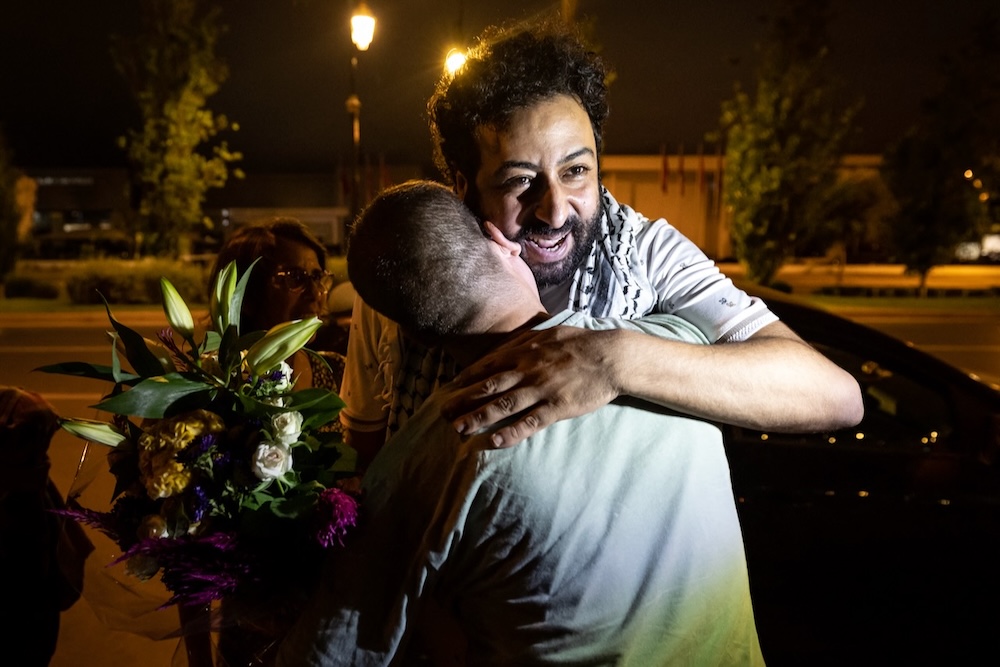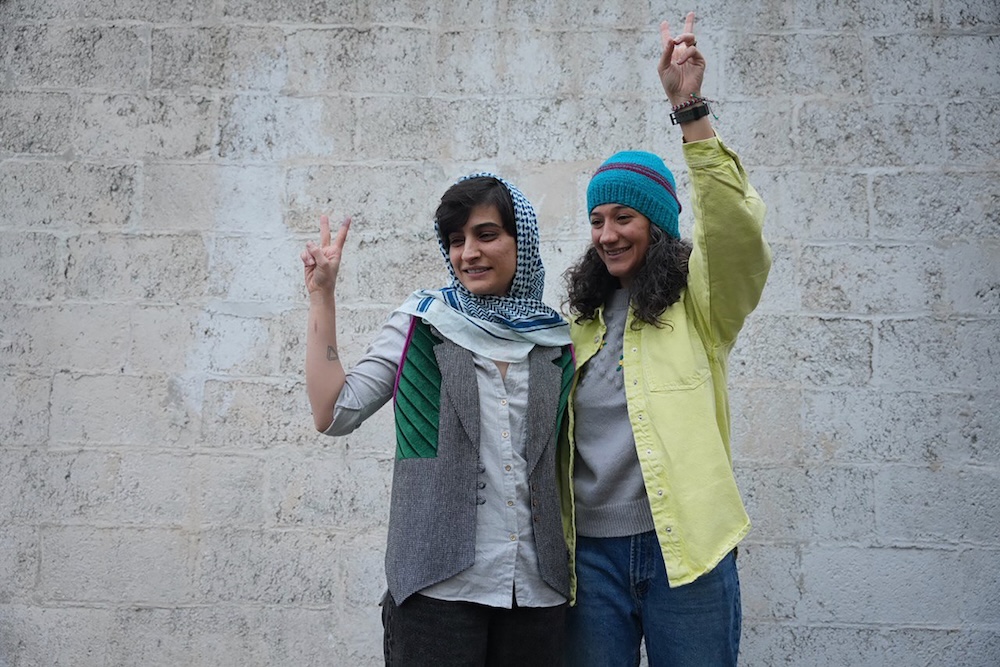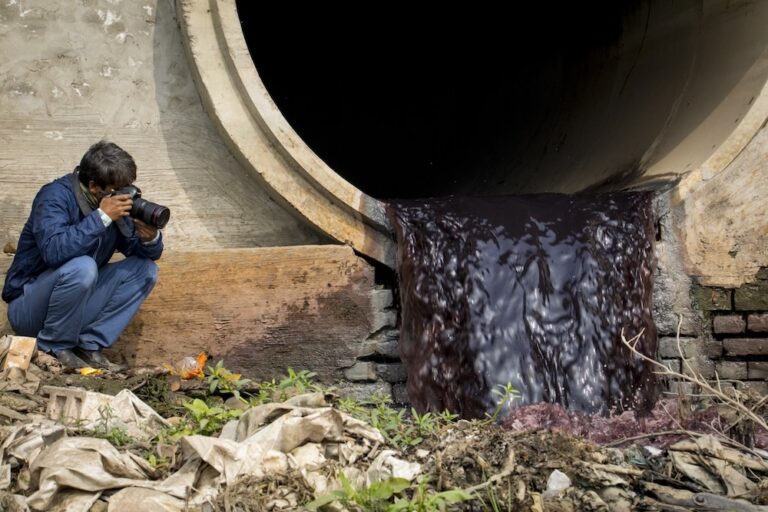RSF takes a look at ten prominent cases of journalists who regained their freedom in 2024, whose newfound liberty is due in part to international mobilisation.
This statement was originally published on rsf.org on 31 December 2024.
Although this year was marked by a rise in detained media professionals — as highlighted in Reporters Without Borders’ (RSF’s) 2024 round-up — it was also marked by many important prison releases. Here’s a look at ten prominent cases from around the world of journalists who regained their freedom in 2024. Their newfound liberty is the fruit of international mobilisation and the long, tireless fight for the right to inform and be informed.
Imprisonment remains one of the primary tools of repression of predators of press freedom, as detailed in RSF’s 2024 Round-up. Five hundred and fifty journalists were still detained around the globe in 2024, an increase of 7.2% compared to 2023. However, the year was also marked by major releases driven, in part, by RSF’s campaigns and international mobilisation.
“While the challenges remain immense and the repression of journalism is still relentless, mobilisation is working and we are delighted and proud to be able to count the number of releases again this year, most of them the result of long-term campaigns. We have fought relentlessly for the freedom of these journalists, for their freedom to practise their profession, and we will continue to mobilise in 2025, with you, so that everyone has access to free, independent information.”
Thibaut Bruttin, RSF’s Director General
Niloofar Hamedi and Elaheh Mohammadi – 14 January – Iran
The two Iranian journalists were released on bail in January 2024, after 15 months in prison. They had been imprisoned in September 2022 for covering the death of Mahsa Amini, who was killed in detention for failing to comply with the country’s strict dress code. Niloofar Hamedi was arrested for photographing Mahsa Amini’s relatives in the hospital where she was being treated, while Elaheh Mohammadi was arrested covering her funeral. Despite their release and acquittal on the charge of “collusion with the United States government”, they are still convicted on other charges: “conspiracy and collusion to commit a crime against national security” and “propaganda against the Islamic Republic”, and risk being imprisoned again. Since the start of the Woman, Life, Freedom protest movement in September 2022, over 100 journalists have been arrested, 18 of whom are still in prison today.
Stanis Bujakera – 19 March – Democratic Republic of Congo
“I was released from jail thanks to your efforts.” Stanis Bujakera thanked RSF and all its supporters the day after his release, which was obtained after six months in detention, seven requests for provisional release, and international mobilisation. In a trumped-up case against him, he was accused of “forging and disseminating” a “false document” from the national intelligence services that incriminated the military’s intelligence service in the assassination of a political opponent.
Aasif Sultan – 10 May – India
Aasif Sultan, a journalist with the monthly Kashmir Narrator who became a symbol of the Indian government’s judicial harassment of independent journalists in Jammu and Kashmir, spent nearly six years in prison. Detained under the Unlawful Activities Prevention Act (UAPA) and the Jammu-and-Kashmir Public Safety Act, he was released on 28 February 2024 and re-arrested two days later. He was finally released on bail on 10 May by a special court in Srinagar, the summer capital of the union territory.
Julian Assange – 24 June – United Kingdom
WikiLeaks founder Julian Assange was released from Belmarsh prison in London on 24 June, bringing the 14-year-old case brought against him by the US to a close. An Australian citizen, he was facing up to 175 years in prison on 18 counts relating to the publication in 2010 of more than 250,000 classified military and diplomatic documents. In exchange for his freedom, he pleaded guilty to conspiring to obtain and disclose classified documents relating to the national defence of the United States. “I am not free today because the system worked. I am free today after years of incarceration because I pled guilty to journalism,” he said on 1 October at a historic hearing at the Council of Europe
Omar Radi, Soulaimane Raissouni and Taoufik Bouachrine – 29 July – Morocco
The founder of the daily Akhbar Al-Yaoum Taoufik Bouachrine, investigative journalist Omar Radi, and Akhbar Al-Yaoum editor Soulaimane Raissouni were released due to a royal pardon issued on 29 July in the lead up to Morocco’s Throne Day celebrations on 30 July. Taoufik Bouachrine had been in detention since 2018. He was sentenced in October 2019 to 15 years in prison and his appeal was rejected two years later. In May 2023, his prison conditions deteriorated due to punitive measures inflicted on him by the prison administration. Omar Radi and Soulaimane Raissouni, who had been behind bars for four years, were also subjected to undignified conditions. They were sentenced in 2020 to six and five years of imprisonment, respectively. Their appeals to the cassation court were rejected in July 2023.

Moroccan journalist Omar Radi (R) hugs a friend after leaving prison in Rabat, Morocco, 29 July 2024. FADEL SENNA / AFP via Getty Images
Alsu Kurmasheva and Evan Gershkovich – 1 August – Russia
American correspondent for the Wall Street Journal Evan Gershkovich and Russian-American journalist for Radio Free Europe / Radio Liberty (RFE/RL) Alsu Kurmasheva were released as part of a prisoner exchange between Russia and several Western countries, including the United States. Evan Gershkovich, arrested on 29 March 2023, had been sentenced to 16 years in prison for “espionage”. Alsu Kurmasheva was arrested in October 2023 and sentenced to six-and-a-half years in prison in July 2024 for failing to declare herself as a “foreign agent” and spreading “false information”.
Floriane Irangabiye – 14 August – Burundi
“Our joy is inexpressible,” the sister of Radio Igicaniro host Floriane Irangabiye, freed on 14 August 2024 after a presidential pardon, told RSF. Floriane Irangabiye was unjustly sentenced in January 2023 to ten years‘ imprisonment for “endangering the integrity of the national territory”. Known for her criticism of the Burundian authorities, the radio host, who had been living in Rwanda since 2015, was arrested on 30 August 2022 during a visit to Burundi.
Jose Rubén Zamora – 18 October – Guatemala
The founder and director of the newspaper elPeriódico, Jose Rubén Zamora, was temporarily released from prison and placed under house arrest on 18 October 2024 — yet the decision was revoked barely a month later, against the president’s recommendation. Jose Rubén Zamora’s request to appeal the revocation is currently in the hands of the Guatemalan Supreme Court. The 68-year-old journalist, winner of the 2023 RSF Prize for Independence, has already spent over 800 days behind bars and now faces the prospect of having to return to prison. “I had more impact in two years in prison than in 30 years of journalism because we stripped away the mask of democracy,” he said from his home in November
Ihsane El Kadi – 30 October – Algeria
After 22 months in prison, the director of Radio M and Maghreb Émergent was released after a presidential pardon. Wrongly accused of having received funds for malicious purposes, the release was bittersweet as Ihsane El Kadi was subjected to heavy fines and the confiscation of his assets, and his media outlet Radio M had to cease operations on 19 June 2024.
Hanin Gebran and Tal al-Mallouhi – 8 December – Syria
On 8 December 2024, the takeover of Damascus by rebels from the Islamist group Hayat Tahrir al-Cham (HTS) led to the flight of former dictator Bashar al-Assad, ending over five decades of the al-Assad family’s reign over Syria. HTS began opening the prisons as soon as the regime fell. Hanin Gebran, a Syria media monitor journalist held since June 2024, and blogger Tal al-Mallouhi, incarcerated since 2009 for her work before the revolution, are among the thousands of prisoners who regained their freedom. On 14 February 2011, Tal al-Mallouhi — a 19-year-old high school student at the time — was sentenced to five years in prison by the High State Security Court for “divulging information to a foreign state”, and was not released after her sentence had been served.



